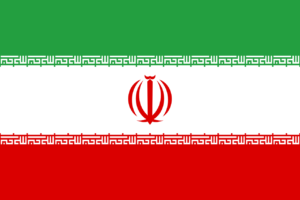The Fake Deal: UAE and Israel
President Trump announced a “suprise” deal, with Kushner and Trump taking credit, which normalizes diplomatic relations between the UAE and Israel. The practical implications are not clear. As part of the deal, Netanyahu has apparently agreed to “suspend” annexations of the West Bank.
The Palestinians were not consulted, and the Palestinian Authoriy and all their various factions have rejected the deal. They know from past experiemce that annexations will resume when the dust settles.
What are the motivations for the accord? (1) The deal may benefit Trump (as if Americans could care what happens in the Middle East) and Netanyahu in upcoming elections. (2) The Gulf Arab States want to unite with Israel against Iran. Saudi Arabia has been tight with Israel for some time. (3) Despite their vocal support for the fate of the Palestinians, the Gulf States have no stake in their plight. Don’t forget that Kuwait kicked out their Palestinian immigrants after the Gulf war.
Whatever the result of the accord, be assured it has no implications that favor Palestine, let alone a “Two-State Solution.
Evangelical Republicanism – The One Trick Pony
American Evangelical Republicanism is a one trick pony. Ask any Evangelical why he or she is a Republican. Chances are the first thing they’ll say is: “I’m against abortion.” Well, so I am. It’s an American travesty. We probably won’t say, “I just want everything else to stay the same.” But we may think that to ourselves.
But abortion is not the only moral issue of the day, and from an ethical and logical standpoint, other issues are of equal import.
The list is long:
American health care ranks 37th in the world, two places above Cuba. How many lives are we losing? Some of us have great health care. Others go to the emergency room when they’re nearly dead. Is this the right course for the richest country in the world? And we pay much more for this health care than any other country in the world.
The rate of violent gun deaths in the US is higher than any other country in what we consider the First World. No matter what our view on “gun rights”, surely we must feel the need to correct this slaughter.
We build a physical wall and a legal wall blocking immigration. Scripture is replete with idea of welcoming foreigners. Exodus 22:21, “Do not mistreat or oppress a foreigner, for you were foreigners in Egypt.”
Income inequality in the US is the highest among the G7 countries. The black-white income gap has remained the same since 1970. The cost in numbers of lives is unknown.
We rank seventh in the world in judicial executions. Is it logical to be against abortion and in favor of execution?
Many Evangelicals don’t believe in climate change, so I won’t put that on the list of moral imperatives. But, if I’m still around, I’ll get back to you when several million Bangladeshis disappear beneath the waves.
So, in addition to abortion, there are tons of ethical issues for Evangelical Republicans to take up.
New Novel: Spiritual Passage in Arabia
My new novel, Spiritual Passage in Arabia, is now available on Amazon in paperback and Kindle version. This is the story of a missionary family who came to Kuwait at the end of the 19th century. Their only son, Pliny Oslander, remained in Kuwait, married a Bedouin woman, and struggled with his own beliefs. God eventually wins out.
Myanmar, Rohingyas, and the Mouse Who Lived on the Train
Years ago I spent a couple of 2-week periods in Burma (now Myanmar). Kipling said, “This is Burma, and it will be quite unlike any land you know about.” Though he was there only three days, Kipling got it right. The people I encountered there – Buddhists, Christians, Muslims – were sweet, deferring, and modest.
I remember our train trip from Mandalay (if Kipling had spent a little more time in Burma, he would have known there were no “flying fishes” in Mandalay) down to Yangon (formerly Rangoon). We traveled via the best train we could book. It was an ancient specimen, its shock absorbers long since absent. The train rocked side to side constantly, making it impossible to sleep. The journey, following the Irrawaddy River down to Yangon, was stated to take fifteen hours, but it was more like twenty. So, for all that time we rolled beside the river, the rice paddies, the palms, the green fields tilled by farmers, their plows pulled by water buffalo. The train stopped perhaps ten times at little towns, and each time the Burmese women with streaks of white make-up (called thanaka) on their cheeks came out to the train cars to sell the food they had prepared. We tried to guess which offering might be safe to eat.
Then, a little while out of each stop, the mouse came out, running, mouse speed, up and down the aisle, scrambling to get the crumbs of our meager meals. No one in the car made a move against the mouse. He would have been an easy target for a well-placed foot. But killing the mouse just didn’t feel right.
We finally arrived, exhausted, at the train station in Yangon. We all swore we’d never take that train again. Curious how the train is my best memory of Myanmar.
And then, the next evening, back down to the bank of the Irrawaddy for a meal at the Junior Duck. If you’re ever in Yangon, don’t miss the Junior Duck.
Yes, Kipling got it right – “unlike any land you know about.”
All of which explains my surprise and consternation over the Myanmar treatment of the Rohingya Muslims. The Burmese army made war against these humble people, genocide we might call it. Now nearly a million Rohingyas are in refugee camps in Bangladesh. Neither Myanmar or Bangladesh has adequate testing for Covid19. How many Rohingyas will die? We won’t know how many or why.
Perhaps the Myanmar government has a reason for their action. I don’t know their reason. Why in this gentle land, a land who lets a mouse live, were the Rohingyas set upon?
Did the Houthis Beat the Saudis?
Why is China Harassing the Uighurs
Why all the China fuss about the Uighurs? As a purely secular state, China has shown repeatedly that it has no interest in any specific religion, whether Judaism, Christianity, Buddhism, or Islam. Are the Uighurs a particular source of extremism or terrorism? To a great degree, no.
What is it, then? I think China desires to promote a uniformity among its population, and any departure from that uniformity is threat to the state. The Uighurs are an isolated, separate people group, which is deemed incompatible with the goals of a strong, centralized state.
As a consequence of this view, the Uighurs are undergoing remarkable persecution with internment camps and “disappearances”, all for the purpose of eliminating them or forcing their integration into the mainstream of Chinese life.
Cost of War with Iran
War is always an unpredictable endeavor, and the factors dealing with Iran are particularly complex.
First, Iran is a huge piece of geography, more than twice as large as Texas. The logistic issues involved in fighting a land battle are immense. Perhaps we might say that all our offense would be airborne. But the targets would widespread and variable in quality. We would have less control over non-combatant causalities.
The major concern about the war, however, has to do with the influence Iran has outside its borders. Iran is currently conducting proxy warfare through their support of the Houthis in Yemen. Iran’s influence in Iraq continues. They support the Hezbollah in Lebanon. Even in Afghanistan, Iran has a presence whose strength we can’t assess.
Thus, the chief, undefined risk of war with Iran is the potential for untoward events that could evolve outside Iran itself.
Yemen Conducts Asymmetric War Against Saudi Arabia
Flag of Yemen
Asymmetric warfare means that the weaker side utilizes unconventional means to combat the superior forces of the enemy. Thus, Yemen is now fighting back against the Saudis. In practical terms, asymmetric warfare means that Yemen can make things difficult for the Saudis to achieve victory.
The Houthis launched a drone assault against the Abha airport in southern Saudi Arabia, and they have targeted the airport with a cruise missile, wounding 26 civilians.
In addition, the Houthis conducted drone attacks on the Aramco East-West pipeline and oil stations deep within the Saudi territory. These attacks demonstrate that the outcome of the conflict is not solely under Saudi control.
Despite the horrors of famine inflicted on Yemen and the thousands of casualties, the Houthis, supported by Iran, are not finished. The outcome of the conflict, even with British and US support for Saudi Arabia, is uncertain.
Iran is thus carrying out their plan for Shia/Iran-supported domination of the Middle East. They are intent in Yemen in their support of the Houthis just as they are in supporting Hezbollah in Lebanon.
Saudi Arabia and Israel Become Friends
Israel and Saudi Arabia have no formal diplomatic diplomatic relations. But they are becoming closer and closer. The word is out that the two countries are meeting unofficially and frequently. They are discovering their common interests.
And their common interest is their common enemy: Iran. The religious basis of this relationship is that neither Israel or Saudi Arabia are Shia Muslim countries. Israel is, of course, Jewish in religion. Saudi Arabia is Sunni. In reality, Israel is a secular state. Thus, Israel and Saudi Arabia are united against Shia Iran.
Saudi Arabia fears the outreach of Iran into Iraq and the Gulf states. Their greatest concern is that Iran may procure nuclear weapons.
Israel fears the influence of Shia Islam and Iran into Lebanon and Hezbollah.
Thus, we must watch the growing effects of this alliance. The factor preventing any sort of formal diplomatic relationship between Israel and Saudi Arabia is the failure to solve the Palestinian issue. But their alliance could be used as a force to speed the Palestinian peace process.









